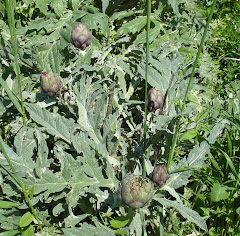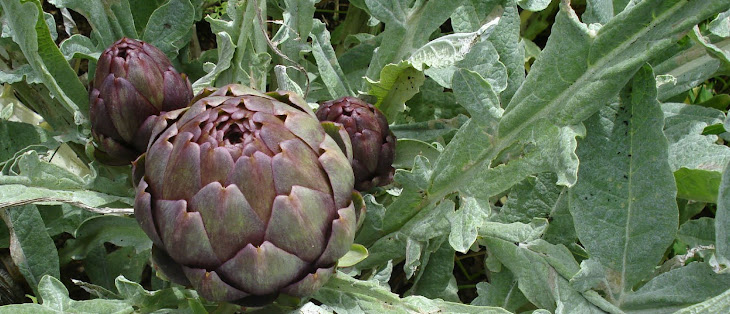Here in southern France we see the Spanish lorries racing along the motorway taking salad produce from the south of Spain to northern European supermarkets, as well as our own shops and markets in the Languedoc, using up the earth’s resources to satisfy shoppers’ need for out-of-season vegetables. There are many arguments against this industry, to do with pollution, water and energy conservation as well as humanitarian concerns. Year-round fresh salads – tomatoes, lettuces, peppers – may seem like an affordable luxury, almost a necessity even, these days, but they come at great human cost to the workers who grow them in the polythene-covered acres of once dry land in southern Spain.
On the Guardian website today there’s a report by Felicity Lawrence about the poverty, deprivation and terrible living conditions experienced by immigrant workers from Africa, who now find themselves without even the low-paid work they used to have and are unable to return home because they cannot afford it. These people, when they can find work, are paid much less than the minimum wage and cannot complain because of their unofficial status in Europe. As the activist interviewed at the end of the film puts it, we should refuse to buy produce that results from this form of exploitation.
The video lasts for over 12 minutes, but it’s worth watching to see another side of ‘holiday’ Spain. Here's the link: tp://gu.com/p/2md95
And then we should all avoid those plastic-packed, unnaturally perfect-looking Little Gem lettuces and eat locally grown, seasonal food.








3 comments:
In your climate it must feel very good to have the diversity of food options year-round. If we restricted ourselves solely to local produce in winter, we'd be eating only winter squash. I admit we eat a lot of California-grown greens in winter, but we do avoid the Chilean produce flown in to satisfy the year-round tastes many here have become accustomed to.
I do agree with you. When we look at the country of origin on vegetables in the supermarkets, we sometimes get a surprise at how far they've travelled. So for reasons of miles alone, it makes sense to eat locally grown produce.
How very sad. This is a world wide problem that stems from lack of human decency on the part of some and the lack of awareness or caring in many others. Thank you for sharing this. In America many of our vegetables come from migrant workers from Mexico who are no doubt also payed poorly and treated badly so that the masses can dine like kings and queens.
Post a Comment